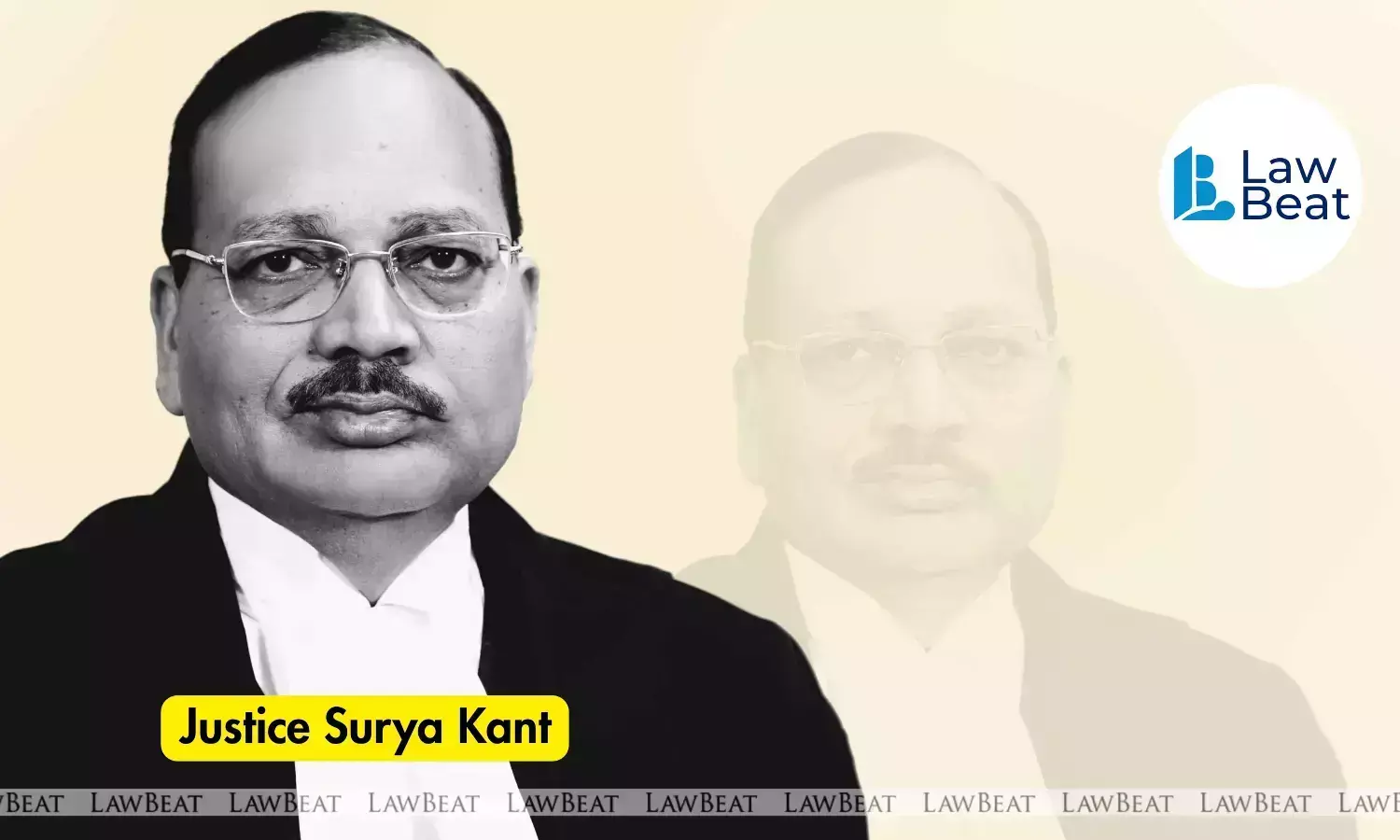Mediation Is a Constitutional Value, Not Just a Legal Tool: Justice Surya Kant

Justice Surya Kant referred to technology as a “force multiplier”.
At the Annual Litigation Conference held in Chandigarh, Supreme Court judge Justice Surya Kant underscored that mediation is not merely an alternative dispute resolution mechanism but a constitutional value that reflects India’s deeper commitment to compassion, consensus, and social harmony in justice delivery.
Delivering the keynote address on “Comity of Courts and International Legal Cooperation in Practice,” Justice Surya Kant said that the Supreme Court’s recently launched “Mediation for Nation” initiative embodies this constitutional ethos by embedding dialogue and empathy at the heart of the judicial process.
“The true purpose of law lies not in perpetuating conflict, but in restoring social harmony,” Justice Surya Kant said.
“Mediation is not merely an alternative to adjudication, but a constitutional value in itself, one that reaffirms our collective faith in compassion, consensus, and the healing power of justice," he said.
The conference was attended by several dignitaries, including Supreme Court and High Court judges, Justice Sheel Nagu (Chief Justice, Punjab and Haryana High Court), Manan Kumar Mishra (Chairman, Bar Council of India and Member of Rajya Sabha), Barbara Mills KC (Chair, Bar Council of England and Wales), former judges, and representatives of the Bar Councils of Punjab & Haryana and England & Wales, along with office bearers of the Punjab & Haryana High Court Bar Association and the Society of Indian Lawyers.
Justice Surya Kant said that India’s judicial system is witnessing a “quiet but powerful transformation”, moving from an adversarial framework to one that prioritises conciliation and harmony. He described mediation as the moral evolution of the justice system, transforming it from technical adjudication into empathetic problem-solving.
“The system as a whole now stands united in its resolve to prioritise conciliation and amicable settlement over protracted contest,” he observed.
Extending his remarks to the global stage, Justice Surya Kant said that comity of courts and international legal cooperation are now practical necessities in an interconnected world. He emphasised that while judicial sovereignty must be respected, courts must also nurture mutual trust to ensure fairness and predictability in cross-border disputes.
“Comity and cooperation are not abstract principles, they are lifelines for real people caught in the complexities of globalisation,” he said.
Justice Surya Kant illustrated the human dimension of global legal disputes, narrating how a mother’s plea for her child’s custody in a transnational case revealed the emotional weight behind legal proceedings.
“That one question, ‘When can I see my child again?’, reminds us that the human element must never be lost in our global debates,” he said.
Concluding his address, Justice Surya Kant urged the legal fraternity to view law as a bridge between nations, institutions, and people.
“Law is at its best when it builds bridges, not walls,” he remarked, calling on lawyers and judges alike to strengthen the global fabric of justice through trust, respect, and collaboration.
He added that a truly compassionate and cooperative judiciary must be anchored in both international comity and constitutional empathy, where mediation and cooperation work together to ensure that justice “heals rather than hardens.”
Recently at the 2nd National Mediation Conference in Bhubaneswar, Supreme Court judge Justice Surya Kant had called mediation the “future of justice,” stressing that while courtrooms often confine disputes to a narrow win–lose outcome, dialogue through mediation opens the door to “infinite solutions.” “Some equations admit no solution. Some yield only one. But the most remarkable are those with infinite solutions. Disputes are also the same. Some close every door. Others allow only a single outcome. But when dialogue begins, conflicts open into many possibilities. Mediation empowers parties to find the solution they can both embrace,” Justice Kant had said.
Justice Kant acknowledged the indispensable role of Courts but noted their inherent limitations. “Courts provide legal answers, but often leave unresolved the deeper current of human conflict,” he had said. Mediation, he argued, expands the frame of justice beyond the binary of winners and losers, offering pathways that both parties can embrace.
He added that mediation reaches into “the hearts and relationships that lie beneath the dispute” in ways law alone cannot. Though the Mediation Act has given India a robust statutory framework, Justice Kant reminded the audience that no law can build a culture of trust. “Legislation, however well entitled, cannot by itself change culture. It cannot create trust. It cannot nurture dialogue. That responsibility rests with us,” he had said.
“Contemporary disputes are rarely simple, they cut across family and business, technology and community. Courts may provide legal answers, but the deeper currents of human conflict often remain unresolved. What people seek is not merely a verdict, but a pathway to move forward. Mediation offers that possibility, for it does more than resolve a case, it fosters solutions that endure,” Justice Kant had said.
